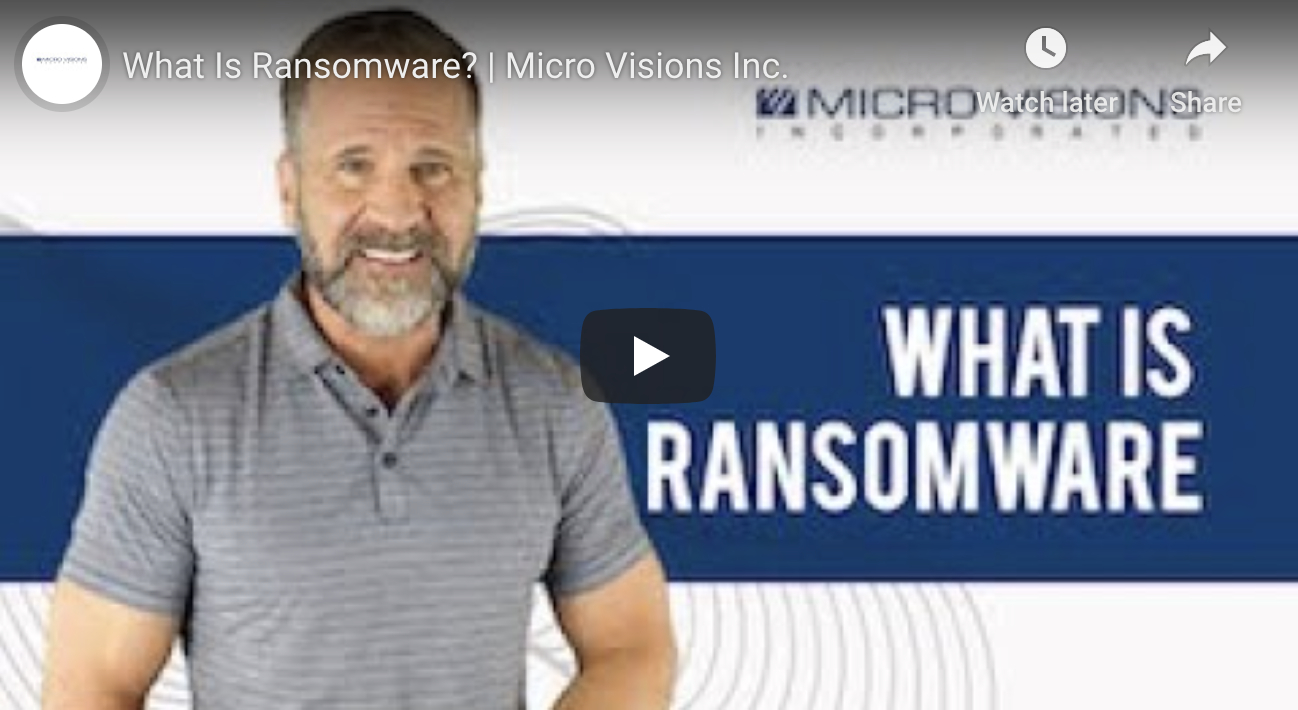
Here's What You Need to Know About Ransomware
Malware is malicious software that uses backdoor tactics to allow cybercriminals to gain control of an infected computer or system. Ransomware is malware in which the attacker demands a ransom to be paid to give control of the computer or system back to the rightful owners. Ransomware first came to prominence in 2005 and since then, it has become the most pervasive type of cyberattack, creating havoc and costing businesses billions of dollars.
How Ransomware Works
Most ransomware infections start with an email message containing an attachment that tries to install ransomware. When an unassuming employee clicks on the attachment, the virus is downloaded onto their computer. Websites hosting exploit kits attempt to use vulnerabilities in web browsers and other software to also install ransomware. Once ransomware infects a device, it starts encrypting files, folders and entire hard drives. Ransomware is one of the most lucrative revenue channels for cybercriminals, so malware authors continually improve their malware code to better target businesses. Ransomware-as-a-service is a cybercriminal business model in which malware creators sell their ransomware to cybercriminals, who then operate the ransomware attacks.
Small Businesses are at Increased Risk of Attack
You would think cybercriminals would focus their attacks on larger companies but this is not always the case. In fact, smaller businesses can be more prone to cyberattacks if they have fewer security measures in place and employees are not trained on how to recognize cyber threats. According to a report from CNBC, 43% of cyber attacks target small businesses. On average, a successful attack costs a business roughly $200,000 if the ransom is not paid, which causes 60 percent of impacted companies to go out of business within six months of the cyberattack.
Paying The Ransom
Ransomware is undoubtedly one of the most crippling cyberattacks, catching victims unaware and ultimately causing long-term consequences for businesses that become infected. In theory, once the ransom is paid, you will be sent an encryption code to unlock your files but that isn’t always true. Paying a ransom to a cybercriminal isn’t always straightforward, they want you to pay in bitcoin or some other form of cryptocurrency so that the payment is untraceable. Ransomeware payouts are averaging $41k per incident according to DarkNetStats. In many cases, the payouts were excessive with some ransom payment amounts surpassing $100,000.
How to Protect Yourself From Ransomeware?
As we were all hit with the coronavirus in 2020, cybercriminals have exploited the crisis by targeting those working remotely from home knowing they are more likely to open email attachments that contain ransomware. The primary methods of distributing ransomware remain spear-phishing and insecure Remote Desktop Protocol (RDP) connections. To protect yourself against a ransomware attack ensure you:
- Have a robust business continuity plan and disaster recovery plan in place where backups are completed daily both onsite and in the cloud.
- Invest in the best cyber-security defenses you can afford including anti-virus software, anti-malware software, DNS filtering, and business-grade firewalls at a minimum.
- Train your employees to never click on an attachment without first verifying the authenticity of the text or email.
- Conduct regular cybersecurity awareness training on a regular basis.
It’s not uncommon for bigger organizations to have an IT security team and even a dedicated Chief Information Security Officer who will be the one to execute your plan of action and handle protocol in the aftermath of an attack. However, for many smaller companies in the Grand Rapids area, budgetary restraints often mean having these experts in-house just isn’t feasible. This is where Micro Visions can help to immediately secure your network against ransomware attacks. Contact us at 616-775-0400 for a no-obligation consultation about your cybersecurity concerns or connect with our team online anytime.




